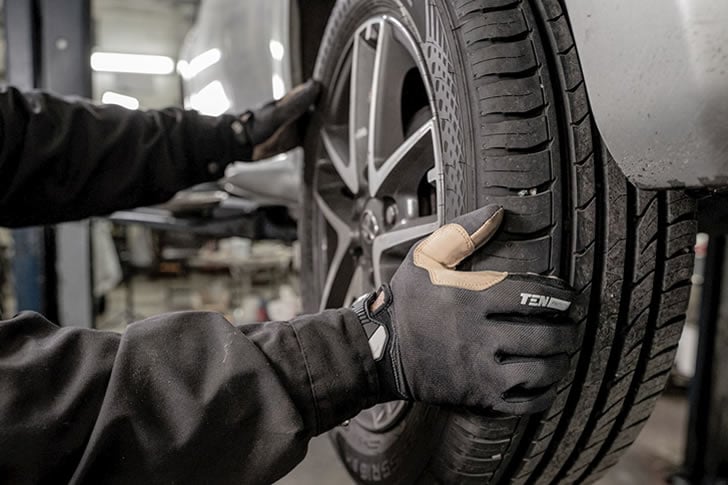Ensuring your tires are properly maintained is crucial for safety. This guide offers essential tips and advice to keep you and your vehicle safe on the road.

Tires are one of the most critical components of your vehicle, directly affecting safety, performance, and fuel efficiency. Proper tire maintenance is essential for ensuring a safe driving experience. Here are some essential tips to help you maintain your tires and keep your vehicle safe on the road.
Maintaining the correct tire pressure is crucial for optimal performance and safety. Under-inflated tires can lead to poor handling, increased tire wear, and reduced fuel efficiency. Conversely, over-inflated tires can cause a harsh ride and increase the risk of a blowout. Check your tire pressure at least once a month and before long trips. Use a reliable tire pressure gauge and refer to your vehicle’s owner manual for the recommended pressure levels.
Tire tread depth is vital for traction, especially in wet or slippery conditions. A simple way to check tread depth is the penny test: insert a penny into the tread with Lincoln’s head facing down. If you can see all of Lincoln’s head, it’s time to replace your tires. Ideally, tires should have at least 2/32 of an inch of tread remaining for safe driving.
Tire rotation helps ensure even wear on all tires, extending their lifespan and improving vehicle handling. Most manufacturers recommend rotating your tires every 5,000 to 7,500 miles, but check your owner’s manual for specific guidelines. Regular rotation can help prevent uneven wear patterns and enhance overall performance.
Misalignment can cause uneven tire wear and affect your vehicle’s handling. If you notice your vehicle pulling to one side or if your steering wheel is off-center, it may be time for a wheel alignment. Additionally, balancing your tires helps prevent vibrations and uneven wear. It’s advisable to have your tires balanced whenever you install new tires or after a rotation.
Regularly inspect your tires for signs of damage, such as cuts, punctures, cracks, or bulges. If you notice any abnormalities, have them examined by a professional. Driving on damaged tires can lead to blowouts and serious accidents.
Every tire has a maximum load capacity, which is indicated on the sidewall. Overloading your vehicle can lead to excessive heat buildup and tire failure. Be mindful of your vehicle’s load limits, especially when carrying heavy cargo or passengers.
If you switch between seasonal tires, proper storage is essential. Store tires in a cool, dry place away from direct sunlight and extreme temperatures. Keep them stacked or hung to prevent deformation. If storing tires with rims, ensure they are cleaned and inflated to the recommended pressure.
Even with proper maintenance, tires do not last forever. Most tires should be replaced every six years, but this can vary based on usage and driving conditions. Look for signs of wear, such as bald spots, cracks, or bulges. If you’re unsure, consult a tire professional for an assessment.
Tire maintenance is a crucial aspect of vehicle safety that should not be overlooked. By following these essential tips, you can ensure that your tires remain in good condition, providing you with a safer and more enjoyable driving experience. Regular checks and maintenance can save you money in the long run and, more importantly, keep you and your passengers safe on the road. Remember, a well-maintained tire is a key to a safe drive!
Explore the Tranquil Bliss of Idyllic Rural Retreats

Ultimate Countdown: The 20 Very Legendary Gaming Consoles Ever!

Understanding Halpin and its Influence

Affordable Full Mouth Dental Implants Near You

Discovering Springdale Estates

Illinois Dentatrust: Comprehensive Overview

Embark on Effortless Adventures: Unveiling the Top in Adventures Made Easy Outdoor Equipment

Unveiling Ossur Valves: Innovation in Prosthetics

Unlock the Full Potential of Your RAM 1500: Master the Art of Efficient Towing!
